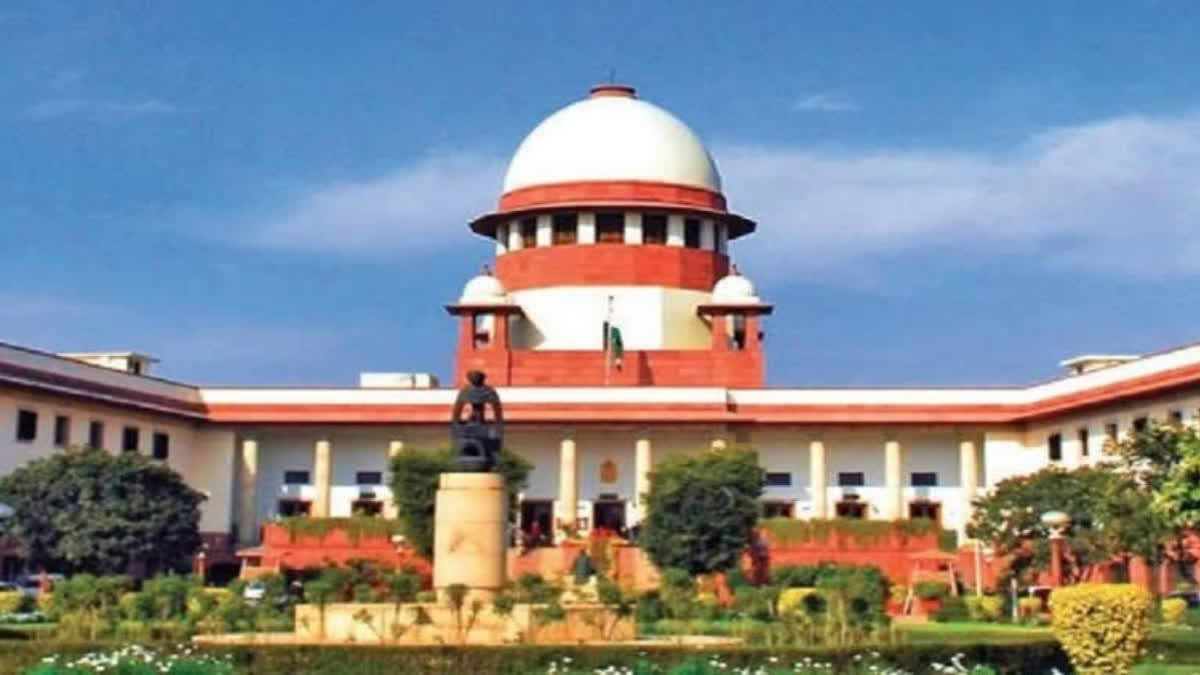New Delhi: The Supreme Court again on Thursday strongly criticised the Commission for Air Quality Management (CAQM) for failing to curb the incidents of stubble burning, saying “Obviously, no steps have been taken by the commission to monitor implementation of its orders”.
On September 27, the apex court made some harsh observations against the commission for not taking concrete steps to curb air pollution in the National Capital Region (NCR), saying “the commission has not performed the way it was expected to perform”, and, like the pollution, commission’s rules are also in the air. Every winter, stubble burning in neighbouring states of Haryana and Punjab triggers severe air pollution in NCR. Stubble burning is one of the major contributors to Delhi's poor air quality.
Today, a bench of Justice Abhay S Oka and Justice Augustine George Masih said: “Obviously, no steps have been taken by the commission to monitor the implementation of its orders. We therefore direct the state governments of Punjab and Haryana to file affidavits disclosing implementation made by them of directions issued by CAQM….”. The apex court said the state governments should file the affidavits in one week.
The apex court said CAQM has not launched a single prosecution against incidents of stubble burning in the National Capital Region and adjoining areas and pointed out that the commission held a meeting on the issue only on August 29.
The apex court said that only five out of 11 members were present in the meeting where the implementation of its directions was not even discussed. “If we find that two experts that two experts’ in the field of air pollution are not part of the commission, we may exercise our extraordinary jurisdiction under Article 142 of the Constitution of India, to appoint some experts in the field as additional members…”, said the apex court.
Pulling up the Punjab and Haryana governments, the apex court said the two states have only exacted nominal compensation from the farmers who were found burning stubble.
After hearing submissions, the apex court directed the Centre and CAQM to file affidavits within a week from today on the matter and scheduled the matter for hearing on October 16.
During the hearing today, the bench, also comprising Justice A Amanullah, said, "Everybody knows that except discussion nothing is happening. That is the harsh reality of this”. Additional solicitor general Aishwarya Bhati represented the Centre before the court.
The apex court, last week, had asked the CAQM to file its response on the steps taken to curb stubble burning.
The bench noted that the committee met only thrice in the past nine months and there was no discussion on stubble burning at all. The bench said the last meeting was on August 29, and the entire September, there was no meeting. The bench asked, “In 2024, there are 129 cases of stubble burning, why action has not been taken against these people?"
The bench asked the commission to show the implementation on the grassroots level of its orders and emphasized that unless there is prosecution, stubble burning cannot be controlled.
The bench was informed that the government had lodged FIRs under the section relating to disobedience of orders of a public servant. However, the bench said it was registered under the softest provision and cited Section 14 of the CAQM Act, and Section 15 of the Environmental Protection Act, which has drastic powers.
The bench asked, "Why Section 15 of the Environmental Protection Act is not invoked and why the corresponding action is not taken against the officers of the government?"
On the aspect of free machines being provided to the farmers, the Punjab government's lawyer contended that 70 per cent of farmers in the state have less than 10 acres of land, and, to use the machine, they would have to employ a driver and use diesel, and they are not willing to do it. The counsel suggested that farmers should be assisted with the cost of running the machine.
The apex court stressed that unless penal action starts at the grassroots level, the stubble-burning issue will not be resolved and added that machines are there but they are not going to use the machines.
Read more: SC Restrains Police Action In Sadhguru’s Isha Foundation Case, Transfers Case To Itself



